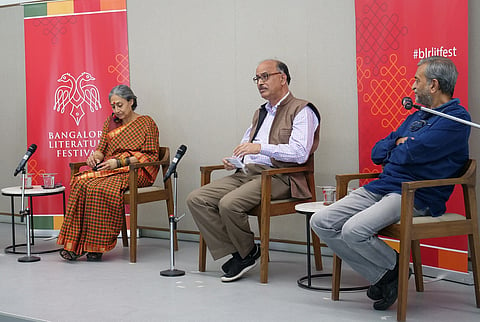

"Cinema has always been political. Political statements were being made in Indian cinema, although subtly. But political leaders saw cinema as an evil and shunned it. So, movies were about the cultural and artistic expression at one point," said Vidyashankar, N, founder member and artistic director of Bengaluru International Film Festival (BIFFes). “For example, the idea of ‘evil’ underwent a great deal of change post the 70s. With films like Ardh Satya (1983), villains changed from goons and dacoits to politicians, bureaucrats and those in power,” he said, explaining how disdain from early politicians prevented Indian cinema from taking a political stand.
He was among the panellists who discussed how cinema shapes political and gender discourse and it's not just about art or masala movies, at the ongoing Bangalore Literature Festival. Padmavathi Rao, an actor, writer, director and poet, and film critic Raghavendra MK were the other panellists at the online session. The panellists pointed out that politics and gender narrative played a crucial role in movies
According to Padmavathi Rao, Indian cinema at large wasn’t political because post-independence, people wanted an escape from their reality. “However, regional cinema, especially Marathi movies, had started assuming a stronger sense of the political events in the 50s-70s and displayed it onscreen,” she added.
When moderator Samantak Bhadra, a poet and marketing professional, broached the topic of how cinema has affected the gender narrative, the three agreed that women were indeed victimized for a long time onscreen.
“As seen in English Vinglish, Sridevi’s character is patronised for the food she cooks as if it is the only job. A woman needs to feel grateful if a man ‘allows’ her to follow something. It has been my personal experience, too. Thappad is about a slap. A woman refuses to take it and even an educated person would want to take a stand. Women are confronting the system,” said Padmavathi.
Coveted film critic Raghavendra added that it is these strictly categorised boundaries created by the filmmakers that keep people from marginalised communities within those boundaries. Vidyashankar added, “It just doesn’t end onscreen; it extends to real life, too. Women and marginalised communities like Dalits have had to encounter multiple glass ceilings.”